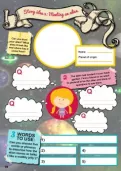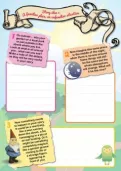Important update from TheSchoolRun
For the past 13 years, TheSchoolRun has been run by a small team of mums working from home, dedicated to providing quality educational resources to primary school parents. Unfortunately, rising supplier costs and falling revenue have made it impossible for us to continue operating, and we’ve had to make the difficult decision to close. The good news: We’ve arranged for another educational provider to take over many of our resources. These will be hosted on a new portal, where the content will be updated and expanded to support your child’s learning.
What this means for subscribers:
- Your subscription is still active, and for now, you can keep using the website as normal — just log in with your usual details to access all our articles and resources*.
- In a few months, all resources will move to the new portal. You’ll continue to have access there until your subscription ends. We’ll send you full details nearer the time.
- As a thank you for your support, we’ll also be sending you 16 primary school eBooks (worth £108.84) to download and keep.
A few changes to be aware of:
- The Learning Journey weekly email has ended, but your child’s plan will still be updated on your dashboard each Monday. Just log in to see the recommended worksheets.
- The 11+ weekly emails have now ended. We sent you all the remaining emails in the series at the end of March — please check your inbox (and spam folder) if you haven’t seen them. You can also follow the full programme here: 11+ Learning Journey.
If you have any questions, please contact us at [email protected]. Thank you for being part of our journey it’s been a privilege to support your family’s learning.
*If you need to reset your password, it will still work as usual. Please check your spam folder if the reset email doesn’t appear in your inbox.
How storytelling can boost learning

Storytelling is a technique that has been enjoyed for hundreds of years. It enables us to pass on cultural history, moral messages and, of course, acts as pure entertainment. Children love stories, even before they learn to read, and will quickly pick up the ability to tell a story.
What do children gain from storytelling?
For young children, storytelling can be a fundamental trigger to spark their imagination. Professional storyteller Dominic Kelly spends his days visiting schools, engaging children in the power of the spoken word. He says, “Storytelling is the cinema of the imagination. As the teller is creating the world of the story in words and gestures, the audience sees that world for themselves in their minds. So a storytelling session can be a wonderful journey of the imagination for children.”


Download a FREE Creative Writing toolkit!
- KS1 & KS2 workbooks
- Bursting with fill-in prompt sheets and inspiring ideas
- Story structure tips, style guides and editing suggestions
While Kelly goes from school to school telling stories to new children each day, for parent and child it can further serve as a significant emotional bonding experience. “Storytelling is genuine sharing. The audience and teller unite, experiencing the same story in the same moment,” says Kelly. Of course a parent knows their child better than anyone else, so they are well-placed to create a story that encapsulates their interests.
Storytelling strengthens literacy skills
Once you’ve modelled storytelling yourself, your child will probably be eager to have a go, too. This is good news, as storytelling helps children learn how to create a story with a plot, characters and setting long before they can write it.
It doesn’t have to be hard work either. Encouraging a child to tell a story is just an extension of what they do naturally anyway. “Like all of us, children tell stories all the time without thinking about it – we all do it every time we tell someone about our day or that funny incident that happened at lunchtime,” says Kelly.
When children listen to a story or learn to tell a story themselves they learn about pace. This helps them when it comes to punctuation comprehension. Through listening and telling they can hear the pauses, hear the questions and subsequently understand more about the written word.
Is it better than reading a book?
The key benefit of storytelling is in the intimacy it involves. “Without a book there as a barrier, the parent is looking directly into the eyes of their child as they tell the story. They can pick up, moment by moment, on their child’s body language, see and feel how they are responding and change how they tell the story accordingly,” says Kelly.
“Young children sometimes need ‘scaffolding’ to get to know the story,” says Kelly, suggesting parents add in some action to the story telling experience (easier without a book in hand!). He explains that through movement, a story can be ingrained in the motor memory of their bodies.
Story-telling tips for parents
- Start with stories you know well, such as folktales, fairy tales, myths and legends
- Don’t just stick with fiction. You can tell tales of your childhood too; these always fascinates children!
- Serialise your tales. Think of a setting and characters and further develop the plot each evening
- Use some simple props if you find it helps. Your child may even like to hold them as you tell the story
- Be inspired by other people's stories. We love the huge collection of free audio stories on Storynory







